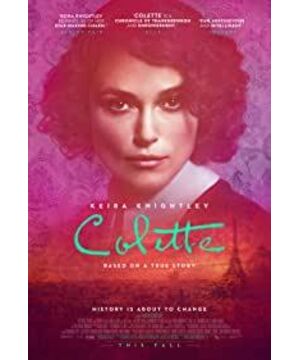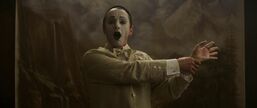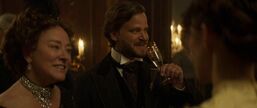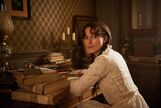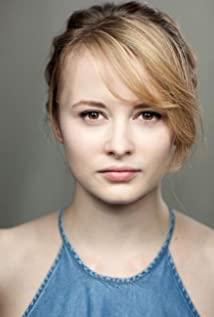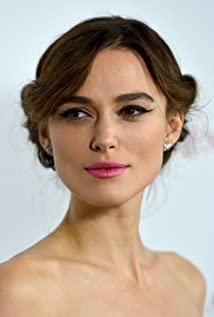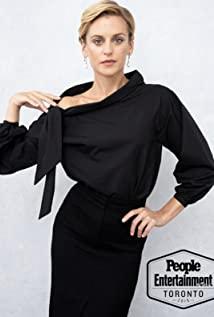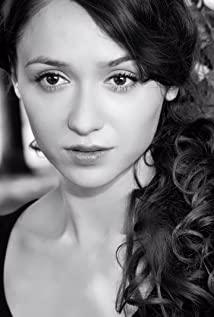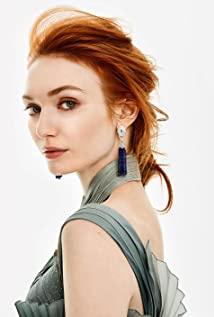If you pay attention to LGBT -related film and television works, I believe you must have been blown away by a movie called " Colette " these days .
Hong Kong, I didn't even know who KK was before watching the movie. For me, the character created is the character, and the actor is herself. This makes it easier to integrate into the film.
But she is really beautiful, kind of temperamental, tall and tall. 19th century clothing, whether it is a dressage dress or a suit breeches, can be perfectly controlled by her.
I have to admit that flat chest has become a high-level endorsement, and people in the fashion circle are more and more fond of the beauty of flat chested clothes.
A lot of people with big breasts really can't wear that feeling, which makes me feel envious of people with flat breasts now. Of course, no matter what your figure is, you don't have to feel inferior, because you are the most beautiful when you are confident. As long as you find clothes that suit you, everyone is a "clothes hanger"!
I've always been a huge viewer of the Ellen show, and I remember a woman declaring that she wouldn't show her daughter Disney. Looking back now, it turns out that this person is KK!
Her remarks are really very good. KK bluntly said, "Girls should not wait for a rich man to save themselves, only themselves can save themselves. In addition, the little mermaid should not give up her wonderful singing voice for a man."
right! Why didn't I think about this question myself? Why did I instill in children the concept of "one man and one woman" and "the princess must have a prince" since childhood?
However, although there was no "Frozen" when we were young, there were very few princes and princesses. When I was a child, I was always full of positive energy films like "The Black Cat Sheriff". The cartoons of my time really lacked love and love. (covering your face... exposing your age, isn't it)
If you know anything about Colette, you know what kind of story it tells. Simply put, it is a process of female independence. How to become her husband's cash cow, how to get rid of her husband's control, and how to achieve financial independence.
In the past two days, I talked a lot about the stories of female protagonists in and out of the play. So I won't talk about the heroine today. The other woman in the film really surprised me. Although she doesn't make many appearances, her power to the heroine is throughout. That was her mother Sido.
Sido has only three short appearances, and her appearances just clearly cut out Colette's three life stages.
The first appearance was in Colette's teenage years, when her father wanted to marry his daughter because he had no dowry and Willy's family background and reputation were good.
And what does the mother care about? "I'm afraid he doesn't understand Colette". Her sentence "even if you can't get married, it's not the end of the world" just wanted to applaud her. Her mother's avant-garde thoughts must have subtly influenced the formation of her independent thoughts when Colette was a child.
Yeah, is not getting married the end of the world? Do human beings have only a single life pattern and trajectory? Human beings must continue to break through the limitations previously involved in order to drive social progress. That's the importance of diversity.
The second appearance was when Colette was a first-time wife. When he got into trouble with his husband and returned to his parents' home, his mother's words seemed to make her understand a lot.
She revealed the true meaning of marriage, and she encouraged her daughter to believe in herself. Life is like a play, everyone will have many identities in this world and play many different roles.
Some roles are not what you want, but you have to play them well, and you know the bitterness and warmth. May you be in this world, all identities are willing, and there is no role-playing.
The third appearance is when Colette is beginning to move towards independence, and she encourages Colette to leave Willy and write a new book under her own name.
Under the conservative social atmosphere at the time, more people advocated that husband and wife should share weal and woe, and women should not publish books and should not make public appearances.
Compared to Colette, I think her mother is more avant-garde than her in thinking. Without her mother, she would not necessarily have achieved such great success. I think everyone's success and failure are inseparable from the immersion of the people around you.
Sido not only guides colette in the direction, but her every appearance also brings us inspiration and thinking.
Personal recommendation:
After watching this movie, I suddenly thought of Dais y Wong (Wang Di Shi) , a Hong Kong female writer I like very much . A few years ago , when I was "poor with books", I was looking around on the Internet and accidentally found a book of hers, so I bought it and read it. From then on, I fell in love with this writer out of control.
In her writing, she depicts this character called "Wang Dishi". She is a young female lawyer with good looks and talents. She walks in Central with a pair of Jimmy Choo, lives alone, and lives a "Bobo BOBO" ”, enjoying the modern love of men and women.
The writing style is in the form of semi-autobiography, telling about the work, emotions and life of myself and the people around me, and I love to complain about the current facts, have my own views and perspectives, and are novel and thought-provoking.
Regarding love, her many books have always described the ambiguous affair between her and her plan A Philp, the emotional pull of urban men and women, and constantly describe for you what is "what you can't get is always in turmoil".
The protagonist Wang Dishi in the book is actually not quite herself. Whenever someone asks how she is different from Wang Dishi, she always says, "I'm smarter than her!"
View more about Colette reviews


